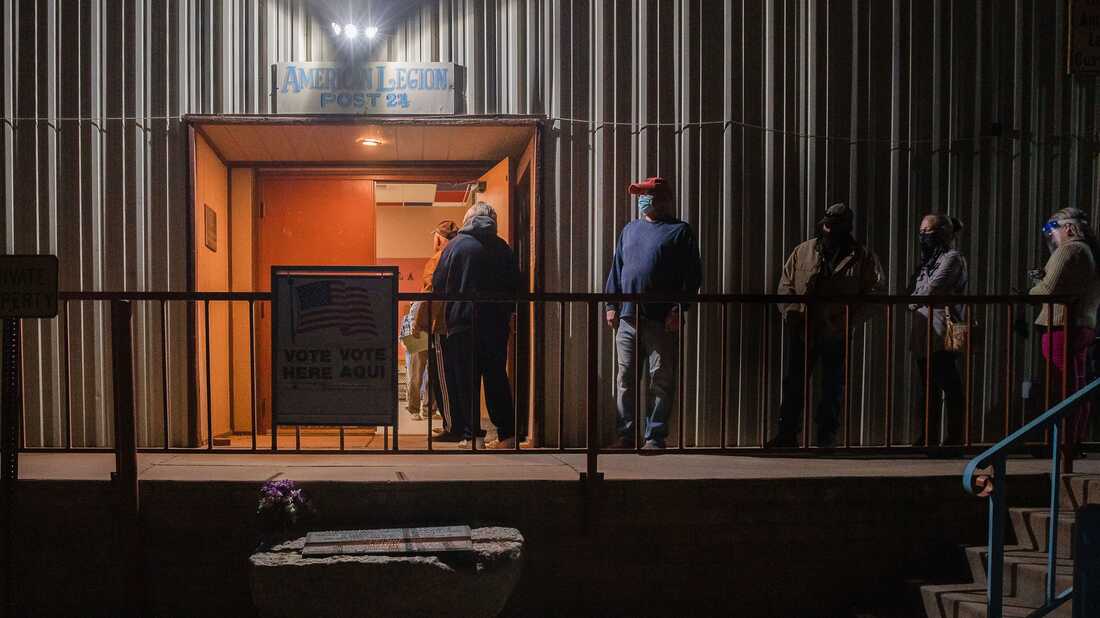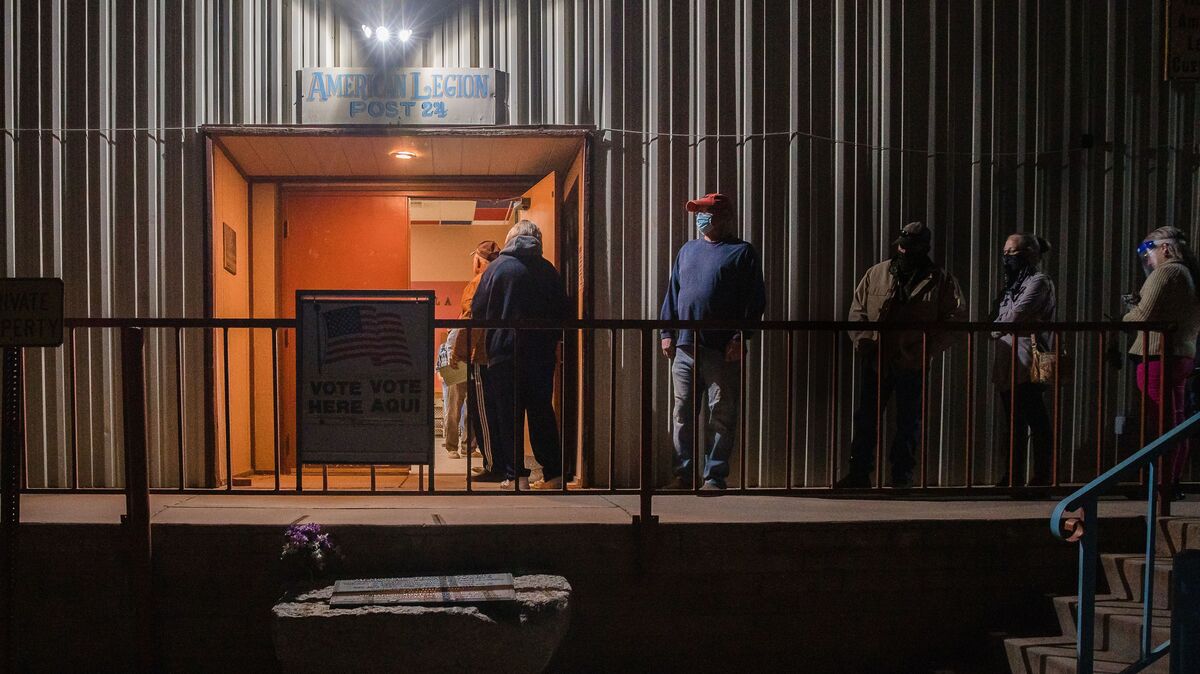[ad_1]

Folks wait in line to vote early on Election Day 2020 in Tombstone, Ariz., in Cochise County. The county’s Republican-led management has voted to delay certifying its 2022 election outcomes, regardless of a state deadline on Monday.
Ariana Drehsler/AFP through Getty Photographs
conceal caption
toggle caption
Ariana Drehsler/AFP through Getty Photographs

Folks wait in line to vote early on Election Day 2020 in Tombstone, Ariz., in Cochise County. The county’s Republican-led management has voted to delay certifying its 2022 election outcomes, regardless of a state deadline on Monday.
Ariana Drehsler/AFP through Getty Photographs
Two counties in a few swing states turned what’s normally an uneventful step within the election course of right into a political flashpoint on Monday.
Officers in rural, Republican-controlled Cochise County in southeastern Arizona, close to Tucson, voted to delay certifying the outcomes of this month’s midterm elections and miss the state’s authorized deadline of Monday, regardless of discovering no legit issues with the native counts.
“There isn’t any motive for us to delay,” mentioned the Democratic chair of the county’s board of supervisors, Ann English, whose vote was outnumbered by the county’s two Republican supervisors, Tom Crosby and Peggy Judd.
The move dangers the exclusion of more than 47,000 Arizonans’ votes from the state’s ultimate, official tally, and it has set off courtroom motion. The nonprofit Arizona Alliance for Retired Individuals and a Cochise County voter, represented partly by the Elias Legislation Group, are suing the county supervisors to attempt to pressure them to certify by Dec. 1.
The Arizona secretary of state’s workplace was additionally planning to file a lawsuit on Monday, spokesperson Sophia Solis mentioned by e mail.
And in northeastern Pennsylvania’s Luzerne County, some 117,000 votes might find yourself neglected of official outcomes after the native board of elections deadlocked alongside social gathering strains when its fifth member, a Democrat, abstained from voting on whether or not to certify. Monday is the state’s certification deadline for counties that haven’t obtained legally legitimate recount petitions.
Pennsylvania’s Division of State has contacted the county’s officers “to inquire concerning the board’s determination and their meant subsequent steps,” spokesperson Ellen Lyon mentioned in an e mail. The Democratic board member who abstained from voting told The Associated Press after the listening to that he deliberate to vote in favor of certifying at one other assembly, set for Wednesday.
Election certifications have gone comparatively easily regardless of these delays
For essentially the most half, nonetheless, the native certification of midterm election outcomes has proceeded with out a lot controversy — in Pennsylvania, Arizona and throughout the nation.
Within the nook of Arizona reverse of Cochise County, one other Republican-controlled group — Mohave County — signaled it was shut to not certifying election outcomes. Final week, GOP officers there mentioned they wished to carry off on making a choice till Monday’s deadline with the intention to make a political assertion. And after recessing their assembly Monday, Mohave’s board of supervisors finally voted to certify the results.
Nonetheless, many election watchers had been elevating issues that Republican officers might disrupt the method for making the election outcomes official after GOP leaders in Cochise County voted on Nov. 18 to attend to determine whether or not to certify the outcomes till the authorized deadline on Monday.
“We additionally knew coming into this election after the final cycle and what we noticed in Otero County [in New Mexico’s primary this year],” defined Tammy Patrick, a former Arizona election official who’s now a member of the Nationwide Process Power on Election Crises, throughout a briefing with reporters final week, “that certification can be one other mundane, banal administrative process that was going to be leveraged and used for partisan potential achieve or partisan rhetoric, at the very least. And that is what we’re seeing right here.”
Republican supervisors in Cochise County cited claims concerning the certification of election gear, which Kori Lorick, Arizona’s state election director, confirmed had been examined and correctly licensed. Nonetheless, Crosby and Judd have referred to as for a gathering on Friday to debate the claims.
Earlier than Monday’s vote, Lorick mentioned in a press release that Arizona’s secretary of state “will use all accessible authorized cures to compel compliance with Arizona regulation and defend Cochise County voters’ proper to have their votes counted” if the board failed to finish its “non-discretionary obligation.”
The controversy over native vote certifications comes as Republicans proceed to criticize the election administration in Arizona’s Maricopa County, the state’s largest county and residential to Phoenix.
Maricopa’s Republican management has defended its dealing with of the election and said no voters were disenfranchised on account of technical points that cropped up on Election Day. Nonetheless, GOP candidates for governor and state legal professional basic, among others, have questioned the outcomes and sought extra info after digital vote-counting tabulators malfunctioned early on Nov. 8 in a few of the county’s voting places.
And Abraham Hamadeh, the Republican legal professional basic candidate, has taken steps that might flip Arizona’s state-level certification deadline, Dec. 5, into one other flashpoint.
Final week, Hamadeh and the Republican Nationwide Committee filed a lawsuit asking an Arizona state courtroom to situation an order that may cease Arizona’s secretary of state from issuing a certificates of election to the race’s obvious winner, Democrat Kris Mayes.
The razor-thin margin between Hamadeh and Mayes means the race is poised for an automated recount.
Ben Giles, a reporter with NPR member station KJZZ in Phoenix, contributed to this report.
[ad_2]
Source link


